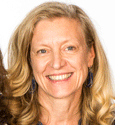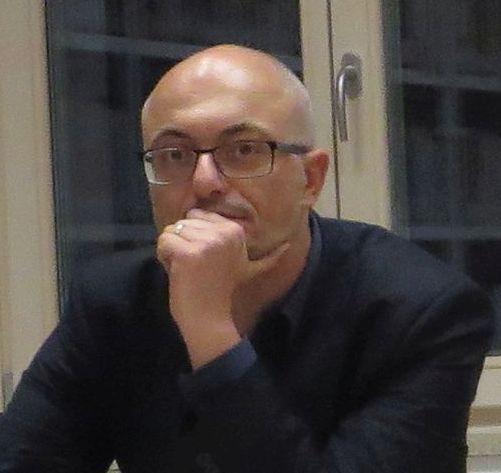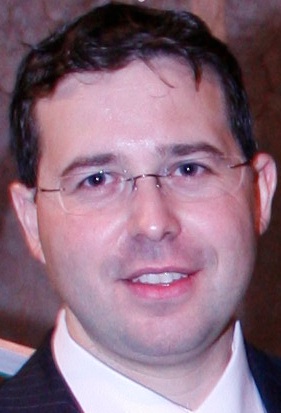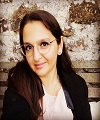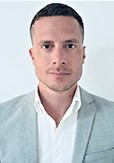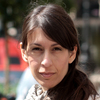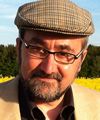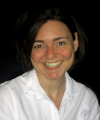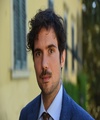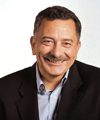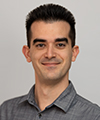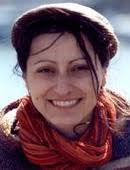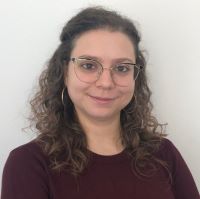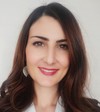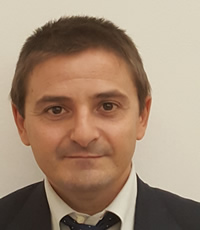Studying at the University of Verona
Here you can find information on the organisational aspects of the Programme, lecture timetables, learning activities and useful contact details for your time at the University, from enrolment to graduation.
Academic calendar
The academic calendar shows the deadlines and scheduled events that are relevant to students, teaching and technical-administrative staff of the University. Public holidays and University closures are also indicated. The academic year normally begins on 1 October each year and ends on 30 September of the following year.
Course calendar
The Academic Calendar sets out the degree programme lecture and exam timetables, as well as the relevant university closure dates..
| Period | From | To |
|---|---|---|
| 1 A | Sep 27, 2021 | Nov 6, 2021 |
| 1 B | Nov 15, 2021 | Jan 12, 2022 |
| 2 A | Feb 14, 2022 | Mar 26, 2022 |
| 2 B | Apr 4, 2022 | Jun 4, 2022 |
| Session | From | To |
|---|---|---|
| Sessione d'esame invernale | Jan 10, 2022 | Feb 12, 2022 |
| Sessione d'esame estiva | Jun 6, 2022 | Jul 23, 2022 |
| Sessione d'esame autunnale | Aug 29, 2022 | Sep 24, 2022 |
| Session | From | To |
|---|---|---|
| Sessione straordinaria (a.a. 2020/21) | Mar 28, 2022 | Apr 2, 2022 |
| Sessione estiva | Jul 11, 2022 | Jul 16, 2022 |
| Sessione autunnale | Nov 7, 2022 | Nov 12, 2022 |
| Sessione straordinaria | Mar 31, 2023 | Apr 6, 2023 |
| Period | From | To |
|---|---|---|
| Festività natalizie | Dec 24, 2021 | Jan 2, 2022 |
| Festività pasquali | Apr 15, 2022 | Apr 19, 2022 |
| Festività Santo Patrono di Verona | May 21, 2022 | May 21, 2022 |
| Chiusura estiva | Aug 15, 2022 | Aug 20, 2022 |
Exam calendar
Exam dates and rounds are managed by the relevant Culture and Civilisation Teaching and Student Services Unit.
To view all the exam sessions available, please use the Exam dashboard on ESSE3.
If you forgot your login details or have problems logging in, please contact the relevant IT HelpDesk, or check the login details recovery web page.
Should you have any doubts or questions, please check the Enrollment FAQs
Academic staff
 giovanni.bernardini@univr.it
giovanni.bernardini@univr.it
 ariel.caputo@univr.it
ariel.caputo@univr.it
 andrea.capuzzo@univr.it
andrea.capuzzo@univr.it
 marco.carradore@univr.it
marco.carradore@univr.it
 francesca.cecconi@univr.it
francesca.cecconi@univr.it
 monica.cristini@univr.it
monica.cristini@univr.it
 paolodalben@tin.it
paolodalben@tin.it
 maxclaudiogallo@gmail.com
maxclaudiogallo@gmail.com
 piergiovanna.grossi@univr.it
piergiovanna.grossi@univr.it
Hatzikiriakos Alexandros Maria
 alexandrosmaria.hatzikiriakos@univr.it
alexandrosmaria.hatzikiriakos@univr.it
 gianluca.lanfranchi@univr.it
gianluca.lanfranchi@univr.it
 giulia.pedrucci@univr.it
giulia.pedrucci@univr.it
 valentina.romanzi@univr.it
valentina.romanzi@univr.it
 alberto.scandola@univr.it
alberto.scandola@univr.it
 massimo.scotti@univr.it
massimo.scotti@univr.it
 sorayaelizabeth.shamloo@univr.it
sorayaelizabeth.shamloo@univr.it
Study Plan
The Study Plan includes all modules, teaching and learning activities that each student will need to undertake during their time at the University.
Please select your Study Plan based on your enrollment year.
1° Year
| Modules | Credits | TAF | SSD |
|---|
2° Year activated in the A.Y. 2022/2023
| Modules | Credits | TAF | SSD |
|---|
Un insegnamento a sceltaForeign language B1 level (CB Test)3° Year activated in the A.Y. 2023/2024
| Modules | Credits | TAF | SSD |
|---|
2 MODULES AMONG THE FOLLOWING| Modules | Credits | TAF | SSD |
|---|
| Modules | Credits | TAF | SSD |
|---|
Un insegnamento a sceltaForeign language B1 level (CB Test)| Modules | Credits | TAF | SSD |
|---|
2 MODULES AMONG THE FOLLOWING| Modules | Credits | TAF | SSD |
|---|
Legend | Type of training activity (TTA)
TAF (Type of Educational Activity) All courses and activities are classified into different types of educational activities, indicated by a letter.
Methodology and Criticism of Performig Arts (2021/2022)
Teaching code
4S008043
Teacher
Coordinator
Credits
6
Language
Italian
Scientific Disciplinary Sector (SSD)
L-ART/05 - PERFORMING ARTS
Period
1 A, 1 B
Learning outcomes
By analyzing specific issues of the History of theatre, we intend to introduce the student to the theoretical and methodological tools offered by the representative medium, regarding the field of communication and to the comparison between different theatrical traditions. At the end of the course students will be able to contextualize, comprehend and examine on their own the meaning of each coefficient proposed by a prose show.
Program
Course Contents:
In 1921 “Six Characters in Search of an Author” by Luigi Pirandello, a text destined to change the fate of Italian theatre, made its debut at the valle Theatre in Rome with a very little success. The reflections included in the play represent the most authoritative point of arrival of a lively cultural debate aimed at denouncing the precarious conditions in which Italian theatre finds itself in the early twentieth century and at claiming the primacy of the dramaturgical conception over the mise en scène. During the lessons the nineteenth-century theatrical contest that created the conditions for the birth of this masterpiece will be deepened, starting from one of the texts that should have given life to the nascent Italian dramaturgy: “Goldoni and his sixteen new comedies”, by Paolo Ferrari.
References:
1. Non-attending students will integrate the bibliography with the study of: Luigi Allegri, "Prima lezione sul teatro", Laterza, 2012.
2. Paolo Ferrari, "Goldoni e le sue sedici commedie nuove" (fotocopie).
3. Luigi Pirandello, "Sei personaggi in cerca d’autore" (edizione a scelta).
4. Denis Diderot, "Paradosso sull’attore", saggio introduttivo e cura di Paola Degli Esposti, Roma, Audino, 2021 [new edition].
5. Paola Degli Esposti, "L’attore nell’Ottocento europeo. La prassi e la teoria", Roma, Audino, 2021.
6. Study of a drama of your choice among the following: Sofocle, "Antigone"; Ariosto, "La cassaria"; Shakespeare, "La bisbetica domata"; Molière, "Il malato immaginario"; Goldoni, "Il teatro comico"; Ibsen, "Rosmersholm"; Čechov, "Il gabbiano"; Strindberg, "Il pellicano"; Pirandello, "Così è se vi pare"; Brecht, "Vita di Galileo"; Beckett, "Aspettando Godot".
7. Study of the first seven chapters of the following manual: Luigi Allegri (a cura di), "Storia del teatro. Le idee e le forme dello spettacolo dall'antichità a oggi", Roma, Carocci, 2017, pp. 15-287.
Teaching methods
Lectures alongside the analysis of sources of various kinds (archive documents, iconography, theatrical performances, films, video fragments, audio, etc.).
Conferences, sources, readings, and critical texts will be further specified during the course. Some materials, necessary for the preparation of the exam, will be available in the e-learning site. The critical commentary of the theatrical or cinematographic adaptations analysed during the lectures will be part of the examination. A specific bibliography will be provided for ERASMUS students.
N.B.: A cycle of lessons will be activated for the specific study of the manual.
Bibliography
Examination Methods
Oral exam with final evaluation. The questions proposed to the candidates will, on the one hand, test their knowledge of the History of theatre with exemplifications offered by one of the dramas of the list; on the other hand, they will test the ability to analyze theoretical concepts and performances following the models showed during the lessons.
Type D and Type F activities
COMPETENZE TRASVERSALI
| years | Modules | TAF | Teacher | |
|---|---|---|---|---|
| 3° | Methods of Research & Thesis Writing | F |
Alessandra Zangrandi
(Coordinator)
|
|
| 1° 2° 3° | Call for the poetic choir of the canto XXVI of the Purgatory | F |
Nicola Pasqualicchio
(Coordinator)
|
|
| 1° 2° 3° | Series of conferences Don Mazza University College | F |
Alessandra Zangrandi
(Coordinator)
|
|
| 1° 2° 3° | Dante on stage. Meetings with directors, actors, choreographers | F |
Nicola Pasqualicchio
(Coordinator)
|
|
| 1° 2° 3° | Girolamo Fracastoro. 500 years from the beginning of modern pathology | F |
Carlo Chiurco
(Coordinator)
|
|
| 1° 2° 3° | Laboratory of Theatrical Criticism | F |
Simona Brunetti
(Coordinator)
|
|
| 1° 2° 3° | Playlab - soft skills workshops | F |
Simona Brunetti
(Coordinator)
|
|
| 1° 2° 3° | Theatre with wheels | F |
Simona Brunetti
(Coordinator)
|
|
| years | Modules | TAF | Teacher |
|---|---|---|---|
| 1° 2° 3° | Future's Festival | F |
Alessandra Zangrandi
(Coordinator)
|
| years | Modules | TAF | Teacher |
|---|---|---|---|
| 1° 2° 3° | Series of conferences Don Mazza University College | F |
Alessandra Zangrandi
(Coordinator)
|
| 1° 2° 3° | Dante on stage. Meetings with directors, actors, choreographers | F |
Nicola Pasqualicchio
(Coordinator)
|
| 1° 2° 3° | From fascism to populism and back | F |
Renato Camurri
(Coordinator)
|
| 1° 2° 3° | Memorial Day | F |
Renato Camurri
(Coordinator)
|
| 1° 2° 3° | International Workshop Mothers in the Time of the Church Fathers: Maternal Thought and Maternal Practice between Normative Representations and Individual Transgressions | F |
Giulia Pedrucci
(Coordinator)
|
| 1° 2° 3° | Laboratory of Theatrical Criticism | F |
Simona Brunetti
(Coordinator)
|
| 1° 2° 3° | Playlab - soft skills workshops | F |
Simona Brunetti
(Coordinator)
|
| 1° 2° 3° | Theatre with wheels | F |
Simona Brunetti
(Coordinator)
|
| 1° 2° 3° | Workshop The ethics and aesthetics of the image | F |
Simona Brunetti
(Coordinator)
|
| years | Modules | TAF | Teacher |
|---|---|---|---|
| 1° 2° 3° | "Common world. 2022 Arendt Seminars | F |
Ilaria Possenti
(Coordinator)
|
| 1° 2° 3° | Restorative Justice | F |
Cristina Lonardi
(Coordinator)
|
| 1° 2° 3° | Gnoseology and Metaphysics Workshop | F |
Davide Poggi
(Coordinator)
|
| years | Modules | TAF | Teacher |
|---|---|---|---|
| 1° 2° 3° | "Common world. 2022 Arendt Seminars | F |
Ilaria Possenti
(Coordinator)
|
| 1° 2° 3° | Gnoseology and Metaphysics Workshop | F |
Davide Poggi
(Coordinator)
|
Career prospects
Module/Programme news
News for students
There you will find information, resources and services useful during your time at the University (Student’s exam record, your study plan on ESSE3, Distance Learning courses, university email account, office forms, administrative procedures, etc.). You can log into MyUnivr with your GIA login details: only in this way will you be able to receive notification of all the notices from your teachers and your secretariat via email and soon also via the Univr app.
Graduation
Documents
| Title | Info File |
|---|---|
|
|
pdf, it, 263 KB, 09/02/22 |
List of theses and work experience proposals
| theses proposals | Research area |
|---|---|
| Laureandi Scienze della Comunicazione: vademecum | Various topics |
| Stage | Research area |
|---|---|
| L'iter del libro in biblioteca | Various topics |
| Proposte stages - Centro di ricerca Skenè | Various topics |

 +39 045 802 8459
+39 045 802 8459
